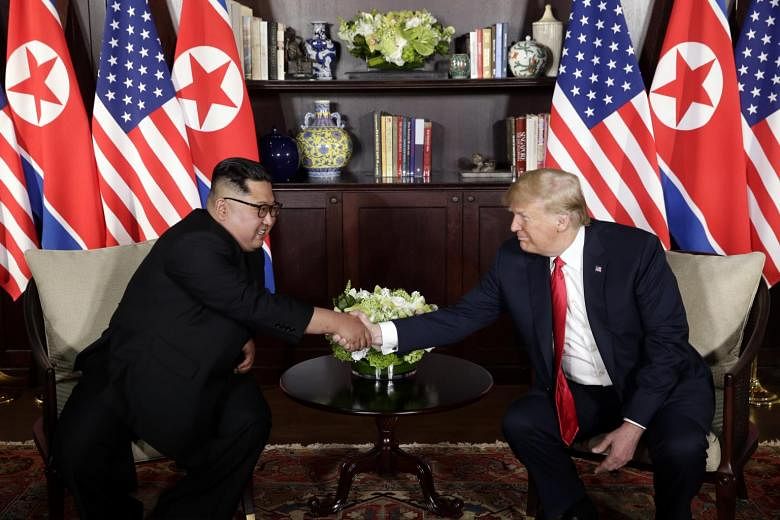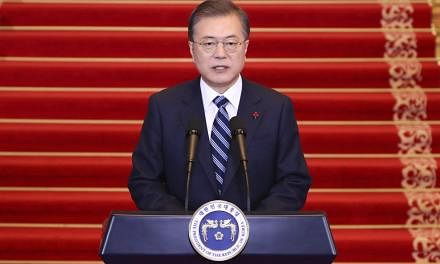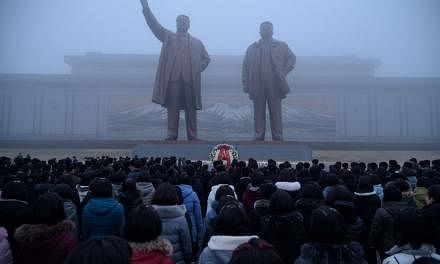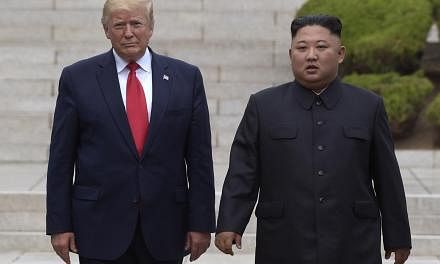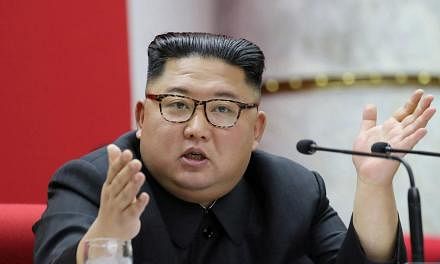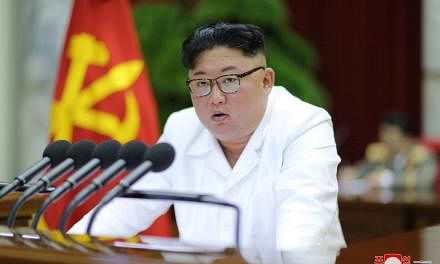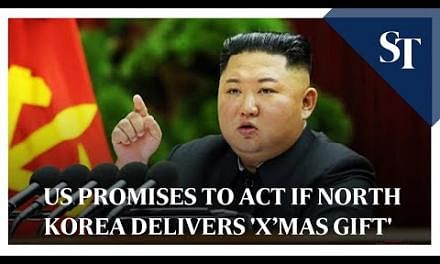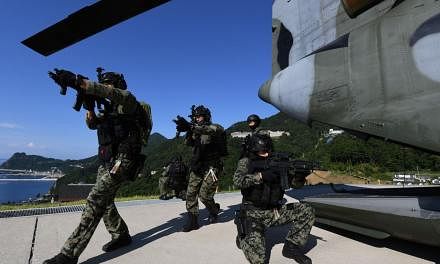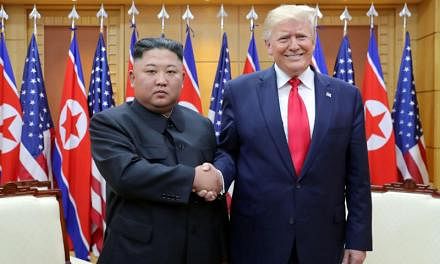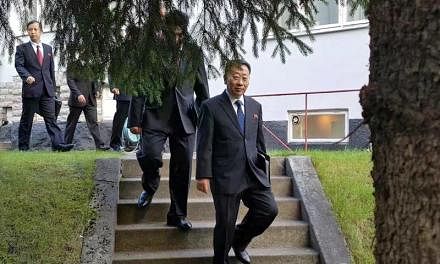WASHINGTON (REUTERS) - The choice of Vietnam as the venue for a second United States-North Korea summit this month shows the possibility of moving beyond conflict and division towards a thriving partnership, the US State Department said on Thursday (Feb 7).
State Department spokesman Robert Palladino told a news briefing that US Special Representative for North Korea Stephen Biegun was in Pyongyang to prepare the Feb 27-28 summit and seek progress on commitments made at the first meeting between President Donald Trump and North Korean leader Kim Jong Un in Singapore in June last year.
These included complete denuclearisation, transformation of US-North Korea relations and building a lasting peace mechanism on the Korean peninsula, he said.
Mr Palladino reiterated that sanctions relief that North Korea has been seeking would follow its denuclearisation.
He said US-Vietnamese history "reflects the possibility for peace and prosperity".
"We moved past conflict and division towards the thriving partnership we enjoy today," Mr Palladino said.
He gave no other details on Mr Biegun's talks in Pyongyang and declined to say how long he would stay there.
The State Department said earlier in the week that Mr Biegun would travel to Pyongyang for talks with his North Korean counterpart Kim Hyok Chol on Wednesday, but has not commented further.
South Korea's Yonhap news agency earlier quoted diplomatic sources as saying that Mr Biegun was expected to fly back to South Korea on Friday to share the outcome of his Pyongyang visit, although his stay in North Korea could be extended if additional discussions were needed.
Mr Trump announced the plan for his second meeting Mr Kim Jong Un in his annual State of the Union address on Tuesday.
He said much work remained to be done in the push for peace with North Korea, but cited the halt in its nuclear testing and no new missile launches in 15 months as proof of progress.
Mr Trump has been eager for a second summit despite a lack of significant moves by North Korea to give up its nuclear weapons programme. He and Mr Biegun have stressed the economic benefits to North Korea if it does so.
Mr Biegun said last week that his Pyongyang talks would be aimed at mapping out "a set of concrete deliverables" for the second summit.
He said Washington was willing to discuss "many actions" to improve ties and entice Pyongyang to give up its nuclear weapons, and that Mr Trump was ready to end the 1950-53 Korean War, which concluded with an armistice, not a peace treaty.
While in the US view, North Korea has yet to take concrete steps to give up its nuclear weapons, Pyongyang complains that Washington has done little to reciprocate for its freezing of nuclear and missile testing and dismantling of some facilities.
Communist-ruled Vietnam, which has good relations with both the US and North Korea, has been keen to host the second summit as a demonstration of its normalisation of ties with the US since the Vietnam War, which ended in 1975 and killed more than 58,000 Americans and an estimated three million Vietnamese.
The US sustained more than 33,000 battle deaths in the Korean War, while the number of North Koreans killed, both military and civilian, has been estimated at about one million.
While Mr Trump has hailed "tremendous progress" in his dealings with North Korea, a confidential report by UN sanctions monitors seen by Reuters this week cast further doubt on North Korea's intentions.
It said the country's nuclear and ballistic missile programmes remained intact and North Korea was working to make sure those capabilities could not be destroyed by any military strikes.
Mr Palladino did not comment when asked about the report.
